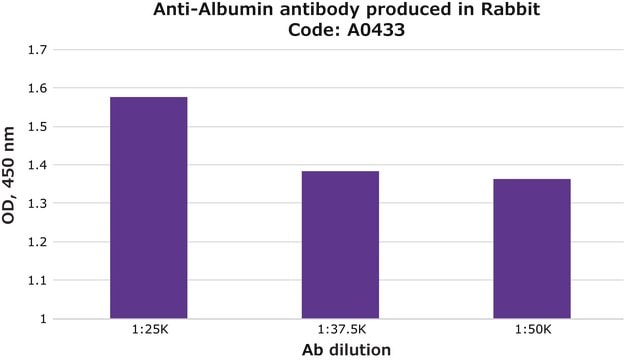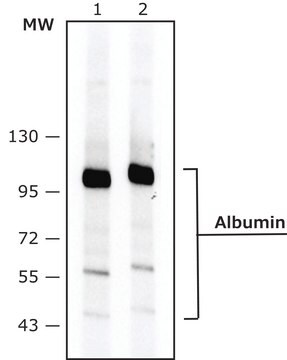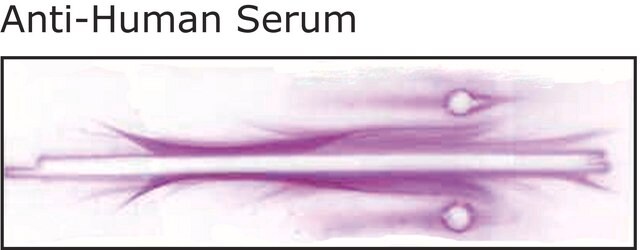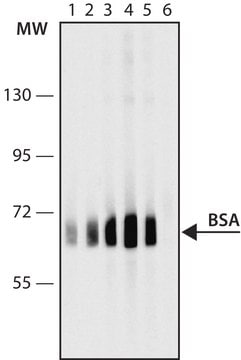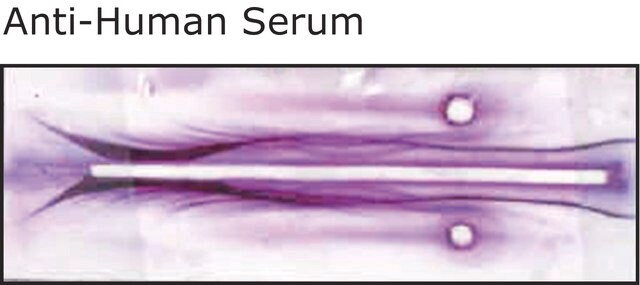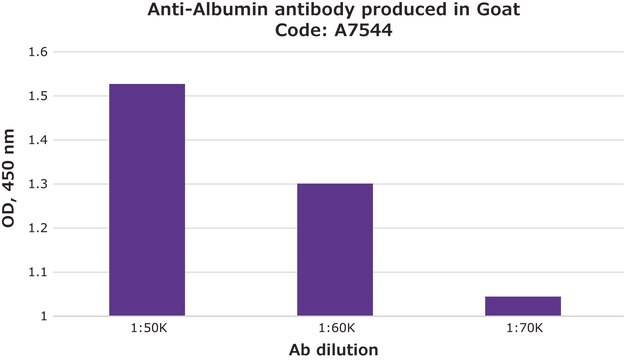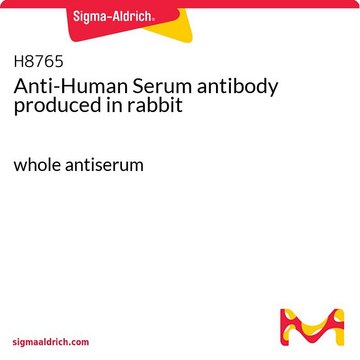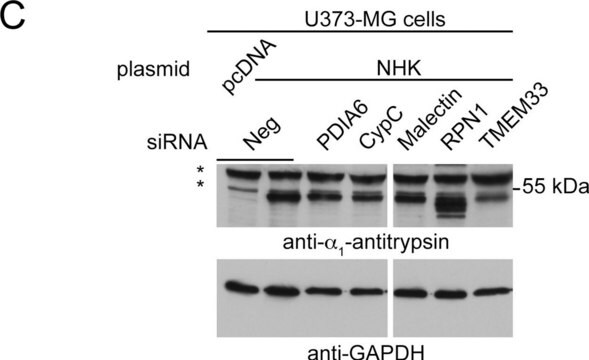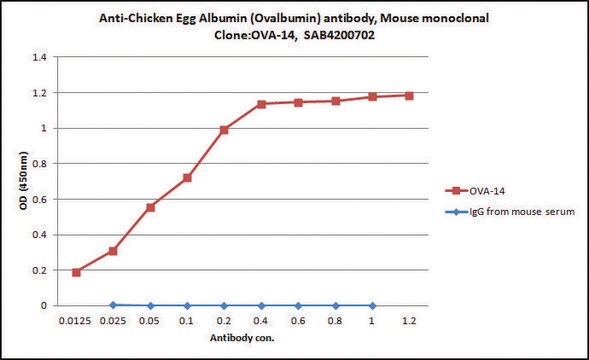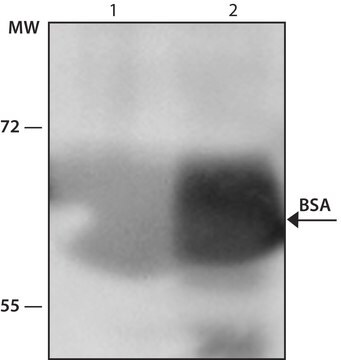A3293
Anti-Human Albumin antibody produced in rabbit
whole antiserum
Sinónimos:
Albumin Antibody, Albumin Antibody - Anti-Human Albumin antibody produced in rabbit, Anti Human Albumin Antibody
About This Item
Productos recomendados
origen biológico
rabbit
conjugado
unconjugated
forma del anticuerpo
whole antiserum
tipo de anticuerpo
primary antibodies
clon
polyclonal
mol peso
antigen 66.437-66.6 kDa
contiene
15 mM sodium azide
reactividad de especies
human
técnicas
indirect ELISA: 1:60,000
quantitative precipitin assay: 2.4-3.6
Nº de acceso UniProt
Condiciones de envío
dry ice
temp. de almacenamiento
−20°C
modificación del objetivo postraduccional
unmodified
Información sobre el gen
human ... ALB(213)
Descripción general
Especificidad
Inmunógeno
Aplicación
Acciones bioquímicas o fisiológicas
Forma física
¿No encuentra el producto adecuado?
Pruebe nuestro Herramienta de selección de productos.
Código de clase de almacenamiento
13 - Non Combustible Solids
Clase de riesgo para el agua (WGK)
WGK 1
Punto de inflamabilidad (°F)
Not applicable
Punto de inflamabilidad (°C)
Not applicable
Elija entre una de las versiones más recientes:
¿Ya tiene este producto?
Encuentre la documentación para los productos que ha comprado recientemente en la Biblioteca de documentos.
Los clientes también vieron
Nuestro equipo de científicos tiene experiencia en todas las áreas de investigación: Ciencias de la vida, Ciencia de los materiales, Síntesis química, Cromatografía, Analítica y muchas otras.
Póngase en contacto con el Servicio técnico

